London 2012: ten years on
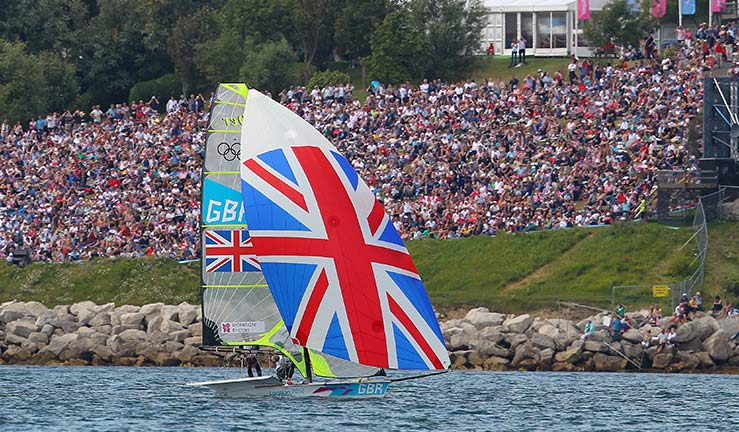
On 06 July 2005, a monumental moment for sailing took place: London was awarded the right to host the 2012 Olympics.
Less than five years earlier, the fledgling Weymouth and Portland National Sailing Academy (WPNSA) had begun in the humblest of settings: a disused military hangar in Portland Harbour.
As part of the official bid for the Games the site was transformed, and, just as the successful London bid was announced, the doors were thrown open to the new-look WPNSA, a world class sailing facility perched on the shores of one of the country’s greatest sailing spots.
It was the start of a journey that would see the area become a mecca for the sport – and introduce thousands of people to sailing and water sports.
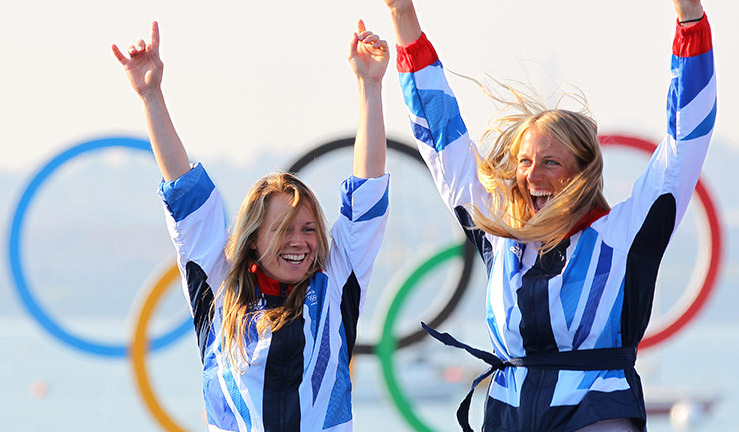
The catalyst of course was London 2012, a month-long festival of Olympic sport that not only gave us Ben Ainslie’s history-making fourth gold medal and set Hannah Mills on the path to becoming the greatest female Olympic sailor of all time, but crucially shone a spotlight on the sport of sailing and the area of Weymouth and Portland.
Ten years on, the legacy of those home Games is obvious.
“London 2012 was not the swansong for Weymouth and Portland, it was the launchpad,” said Pete Allam, the London 2012 sailing deputy competition manager who’s been at the helm of WPNSA since 2013.
“There was significant investment in the local area and of course the WPNSA site. That’s all physical legacy that is easily seen, and allows us now to be able to cater to all sizes of regattas.
“Ten years on, this is still one of the best places to go sailing in the world, and we’re still here doing it. That’s fantastic.”
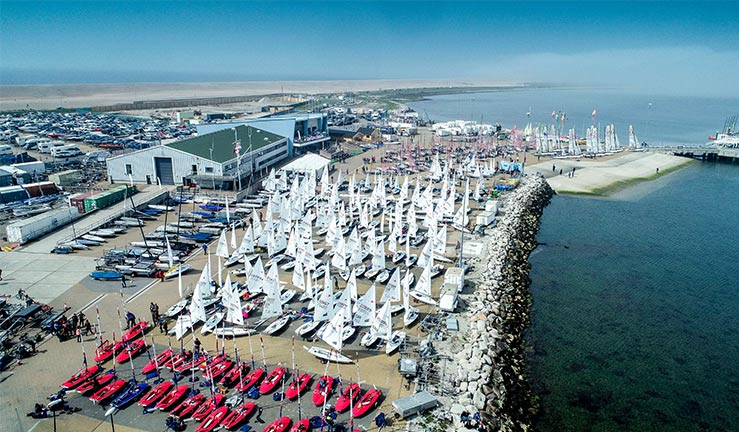
The boost London 2012 gave goes far beyond the physical, however.
“It was successful for Team GB and that inspired others to want to emulate them, particularly as it was happening in their back gardens,” Allam adds.
“But the Games also set the bar pretty high for the standard of race management and officiating. Subsequently we have developed a generation of race officials who aspired to, and are now mentoring to, those standards.
“And the volunteers took everything they’d learned back to their clubs all over the country, helping to improve standards nationwide.”
British Sailing Team windsurfer Tom Squires was only 19 years old when Nick Dempsey won silver in front of home crowds. Ten years it was he pulling on the Team GB rashvest at Tokyo 2020.
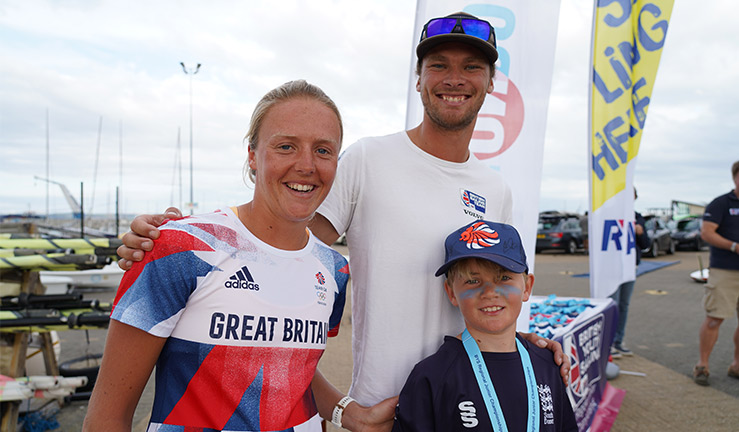
Squires puts his Olympic success not down to a drive to go to the Games however, but to a deep love of water sports honed on the waters of Weymouth and Portland.
“The legacy of London 2012 is that it’s brought a lot of water sports to Weymouth and Portland.
“It doesn’t matter if you’re 10 years old or 60 years old – everyone’s out on the water enjoying themselves, and it’s such a good vibe. A lot of sports don’t seem to have that.”
As well as the world class facilities of WPNSA, Portland Harbour has become a destination venue for watersports lovers and those wanting to try a new sport.
It is home to multiple watersports schools teaching young and old how to sail, windsurf, wingfoil and kitesurf.
The Andrew Simpson Foundation, set up following the tragic death of British Olympic sailing legend Andrew ‘Bart’ Simpson in 2013, helps thousands of children experience the joys of sailing, not only from its base at WPNSA but from centres across Europe.
“Put simply, without London 2012 we wouldn’t have the setup we do at WPNSA,” said the Foundation’s Sally Turner. “We constantly get comments from those using our centres who have been influenced in some way by London 2012, whether it’s the parents who watched the racing or the child who’s just gone sailing in the same spot where Ben Ainslie won a gold medal.”
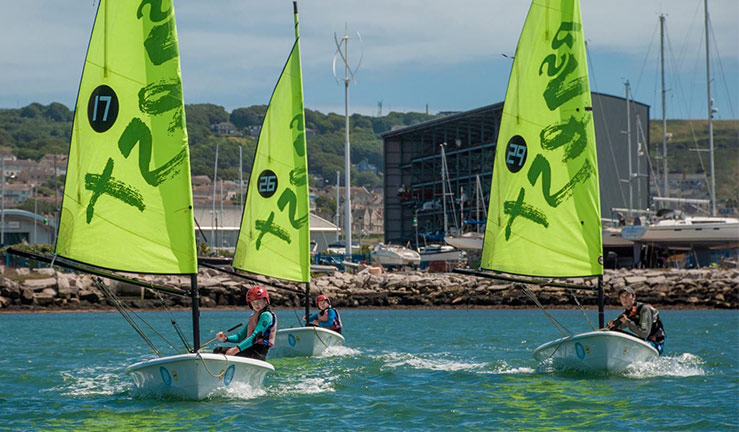
The Chesil Sailing Trust, established at the same time as WPNSA in the early 2000s to help young, disadvantaged or disabled people go sailing or windsurfing, saw an influx of interest following London 2012.
Its Sail for a Fiver and Windsurf for a Fiver schemes now cater to almost 2,000 youngsters each year.
“I have no doubt in my mind that London 2012 ramped up the interest in sailing,” said trust clerk Tom Grainger.
“We’ve now helped 30,000 children go sailing – and the Olympics was definitely the stimulus.”
Another success story is Chesil Sailability, a trust launched in the wake of London 2012 to capture the success of the paralympic competition and provide opportunities for disabled people to enjoy sailing.
From modest beginnings it now has a fleet of specially adapted boats and a thriving community of para sailors regularly taking to the water.
At the highest level, London 2012 inspired a generation of youngsters to strive for their own Olympic successes.
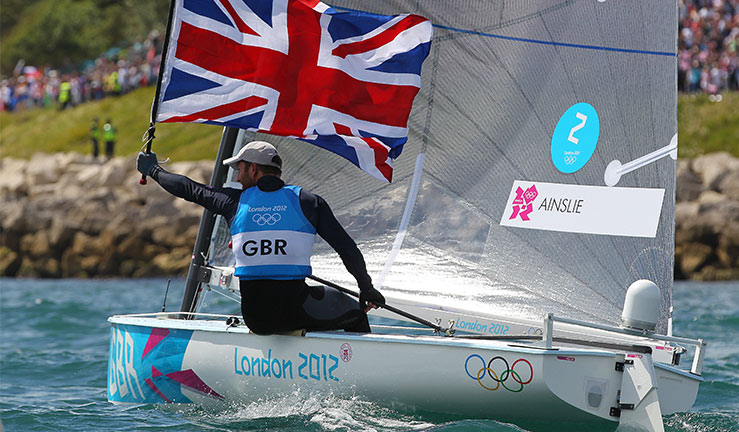
Many British Sailing Team athletes striving for a spot in Team GB for the Paris 2024 Olympics were mere teenagers – or younger - when London 2012 took place, but they now get to call WPNSA and its world class facilities home.
And professional sailing is peppered with success stories who took motivation from the Games and channelled it into their own careers.
Whether it’s a dream of Olympic glory or just the opportunity to try something new, the sheer impact of London 2012 remains at the forefront of sailing.
“Anyone who goes to WPNSA can see the Olympic rings looking out over the harbour,” said Nikki Boniface, a former British Sailing Team athlete who now races alongside Ainslie on the SailGP circuit.
“The success on home waters continues to have a positive impact on the next generation.”
Find out more about the legacy of the London 2012 Olympic Games and the impact on sailing in the UK in new 90-minute documentary, Chasing Tokyo.
